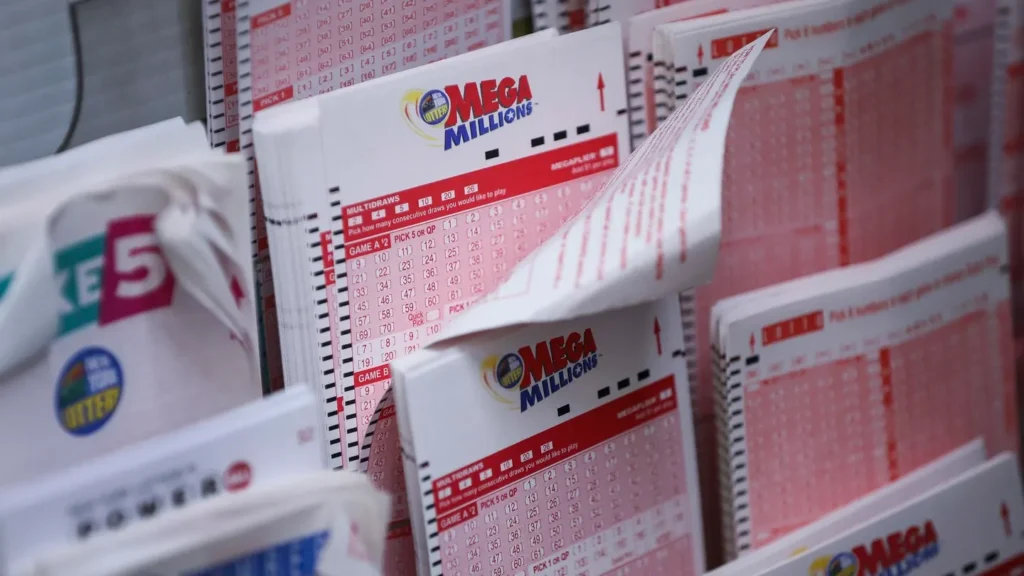Feb 17, 2024,09:56am EST
The Mega Millions jackpot climbed to nearly $500 million on Saturday morning as no winning tickets emerged from Friday’s draw, although a fortunate winner would pocket less than a third of that sum after taxes.
Here are the key points:
Jackpot Details:
The absence of winning tickets matching the five white balls and one red “megaball” during Friday night’s drawing propelled the Mega Millions jackpot to a staggering $493 million. This marks the 14th largest jackpot in the game’s history and the most recent major jackpot this year, following a Powerball winner who secured an $842 million jackpot last month.
A fortunate ticket holder, overcoming astronomical odds to match all six balls and claim the jackpot, can opt for the jackpot spread over 30 yearly installments or as an immediate cash lump sum of $231.1 million. However, federal taxes significantly diminish these winnings.
Opting for the lump sum, favored by most lottery winners, entails a mandatory 24% federal tax withholding, reducing the winnings to just over $175.6 million. Depending on the winner’s taxable income and significant deductions like charitable contributions, the federal marginal rate, which can reach 37%, could further diminish it to approximately $145.6 million.
State taxes could further erode the prize, although not all states impose taxes on lottery winnings. Alternatively, choosing the installment route would yield annual payments averaging slightly over $16.4 million before taxes, with the full 37% federal marginal rate reducing these yearly payments to just over $10.3 million.
What to Expect:
- The next Mega Millions drawing is scheduled for Tuesday night at 11 p.m. EST. Meanwhile, the Powerball jackpot, trailing closely behind Mega Millions, stands at $306 million with a cash option of $144.5 million. The next Powerball drawing occurs at 11 p.m. Saturday night.
Noteworthy Figure:
- A lucky ticket holder in Altadena, California, clinched a staggering $2.04 billion Powerball jackpot in November 2022, marking the largest jackpot in U.S. history. After federal taxes, the prize dwindled to approximately $628 million, chosen as a lump sum over annual payouts. The size of lottery jackpots has soared in recent years due to rules changes that increased the odds of winning grand prizes, resulting in longer streaks of unsuccessful draws and increasingly substantial jackpots. All of the top 10 lottery jackpots have been claimed in the past decade. As a consequence of these rule changes, the odds of winning the Mega Millions on a single $2 ticket stand at an astronomical one in nearly 302.6 million, with odds of winning the game’s smallest $2 prize standing at a palatable one in 37.

